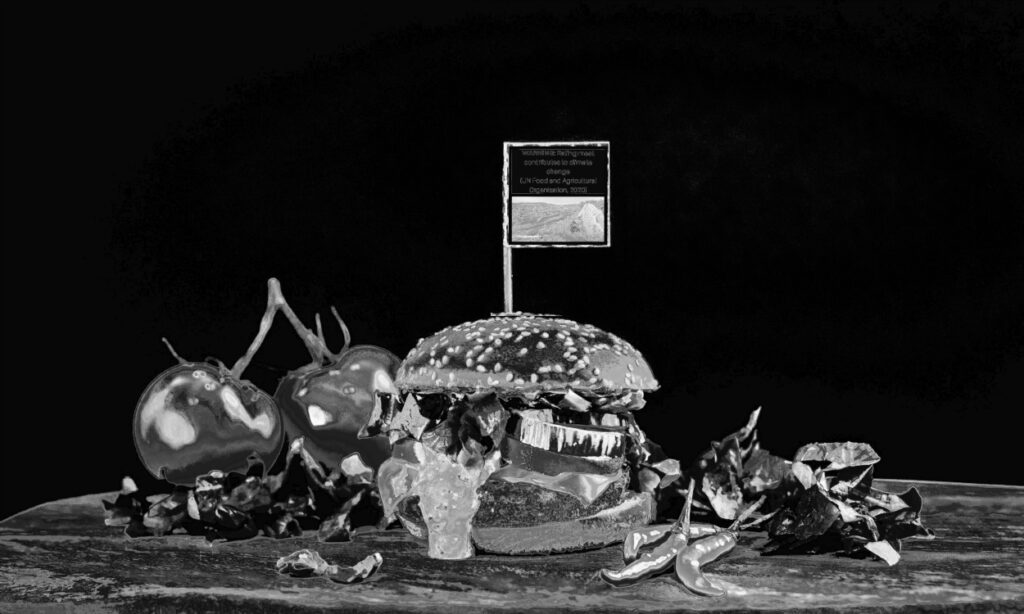Cigarette-style graphic warnings should be slapped on MEAT to flag silent killer dangers, scientists say | The Sun

SCIENTISTS claiming cigarette-style health warnings should be slapped on meat packets have been accused of “demonising” Brits.
A new study found using graphic warning labels reduced how much meat people ate by up to 10 per cent.
Durham University researchers said the labels should be brought in as “national policy” to improve health and the environment.
But campaigners and experts hit back at the claims, saying the Government has no business nannying Brits’ food choices.
Mo Metcalf-Fisher, of the Countryside Alliance, said: “There is no justification for demonising a dietary preference enjoyed by the vast bulk of the British public.
“Those wanting to push plant-based alternatives should do so via the free market, not bureaucrats.”
Read more on diet

4 'warming' foods that'll save you putting the heating on – chocolate is included

Eating just two bacon sandwiches a week increases your risk of a silent killer
Christopher Snowdon, of the Institute for Economic Affairs, said using “cigarette-style policies” would see meat going the same way as tobacco.
Rishi Sunak last month pledged to raise the legal age for buying cigarettes in England by one year every year, effectively phasing the habit out.
Mr Snowdon said: “Graphic warning labels will just be the start of a prolonged campaign against meat by the vegan and environmental lobby.
“We know how this ends and we should nip it in the bud now.”
Most read in Health

Nottingham hospitals declare critical incident as Brits told not to call 999

Girl, 12, was unable to wear shoes and struggled to walk due to giant big toe

Bizarre things people do while under anaesthetic – from kissing to masturbating

I got a hairy skin graft to save my nose after a dog attack – I love my new look
Around three quarters of Brits currently classify themselves as meat-eaters, according to a YouGov poll.
Eating too much red and processed meat has been linked to a greater risk of cancer, obesity and heart disease.
The World Cancer Research Funds recommends people should not eat more than three portions of meat a week.
Previous research has shown eating just two bacon sarnies a week is enough to increase your risk of type 2 diabetes as well.
The latest study, published in Appetite, looked at how people respond to warning labels on meat packaging.
People were shown pictures of hot canteen meals with either a health warning label, climate warning label, pandemic warning label or no label.
The warnings reduced meal selections from seven to 10 per cent, with people saying they found the climate labels most credible.
Dr Milica Vasiljevic said: “We already know that eating a lot of meat is bad for your health and that it contributes to deaths from pollution and climate change.
“Adding warning labels to meat products could be one way to reduce these risks to health and the environment.”
Study author Jack Hughes said: “Reaching net zero is a priority for the nation and the planet.
“Using a warning label on meat-containing products could help us achieve this if introduced as national policy.”
Other independent experts also backed the measures.
Tam Fry, of the National Obesity Forum, said: "The scientists are correct in demanding the warnings.
"Because similar labels have been used very successfully in other countries, the UK Government should at least trial them here.
"Not to do so should not be an option."
Professor Ivo Vlaev, of the University of Warwick, said highlighting the negative consequences of consuming meat could be more effective than promoting the benefits of alternative choices.
But any labelling would have to be balanced, he said.
He said: "The nuances and intricacies of implementation cannot be overlooked, as such interventions have the potential to be contentious.
Read More on The Sun

Big Brother row kicks off after surprise eviction as star brands rival 'a fake'

Cash payment worth £300 landing in bank accounts from TODAY – exact code to spot
"One could reasonably envision an organic chicken farmer in Shropshire taking issue with a label suggesting deforestation in the Amazon.
"Ensuring fairness in application, given the diversity of products and their varying impacts, presents a significant challenge."
Source: Read Full Article

